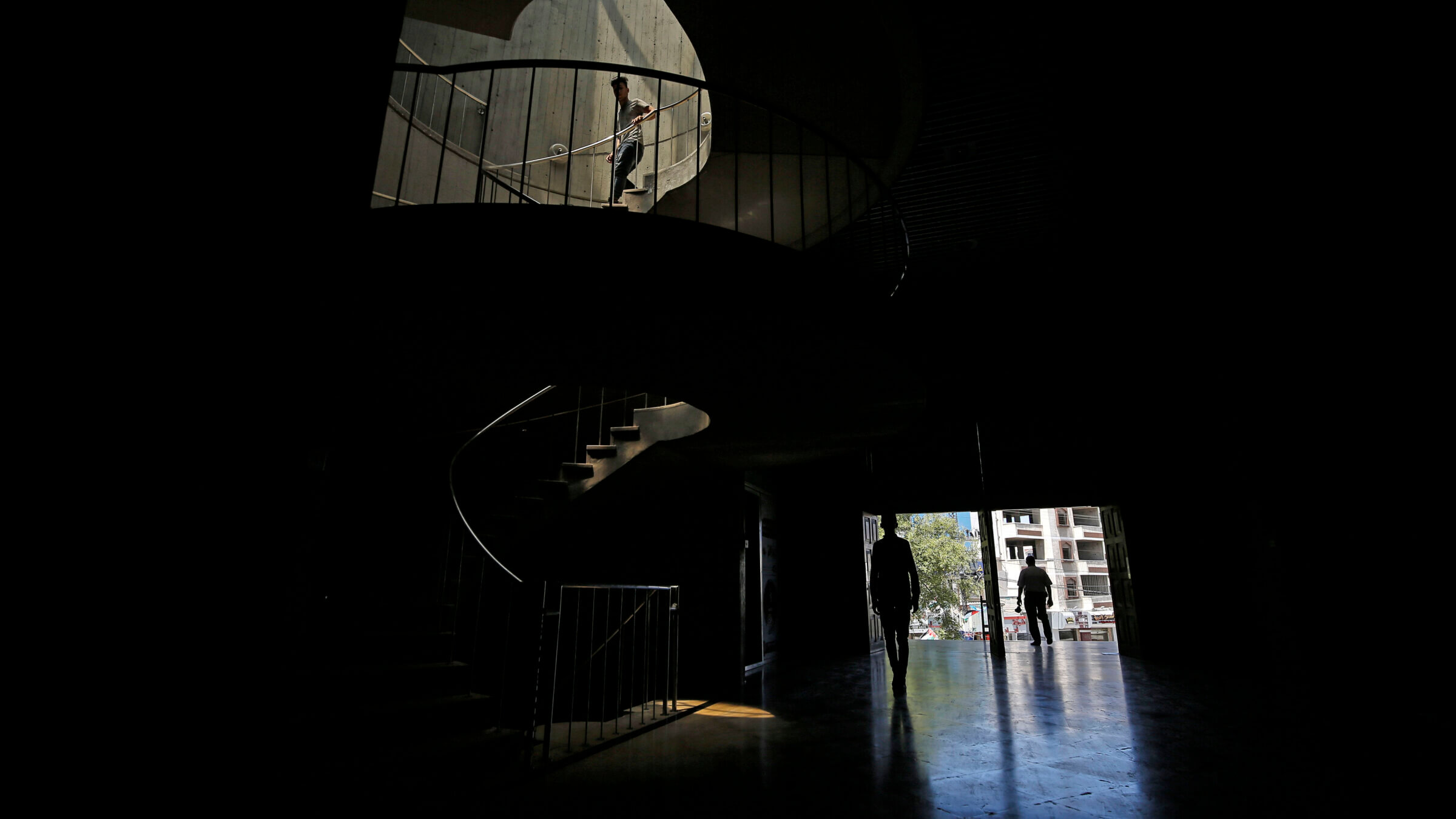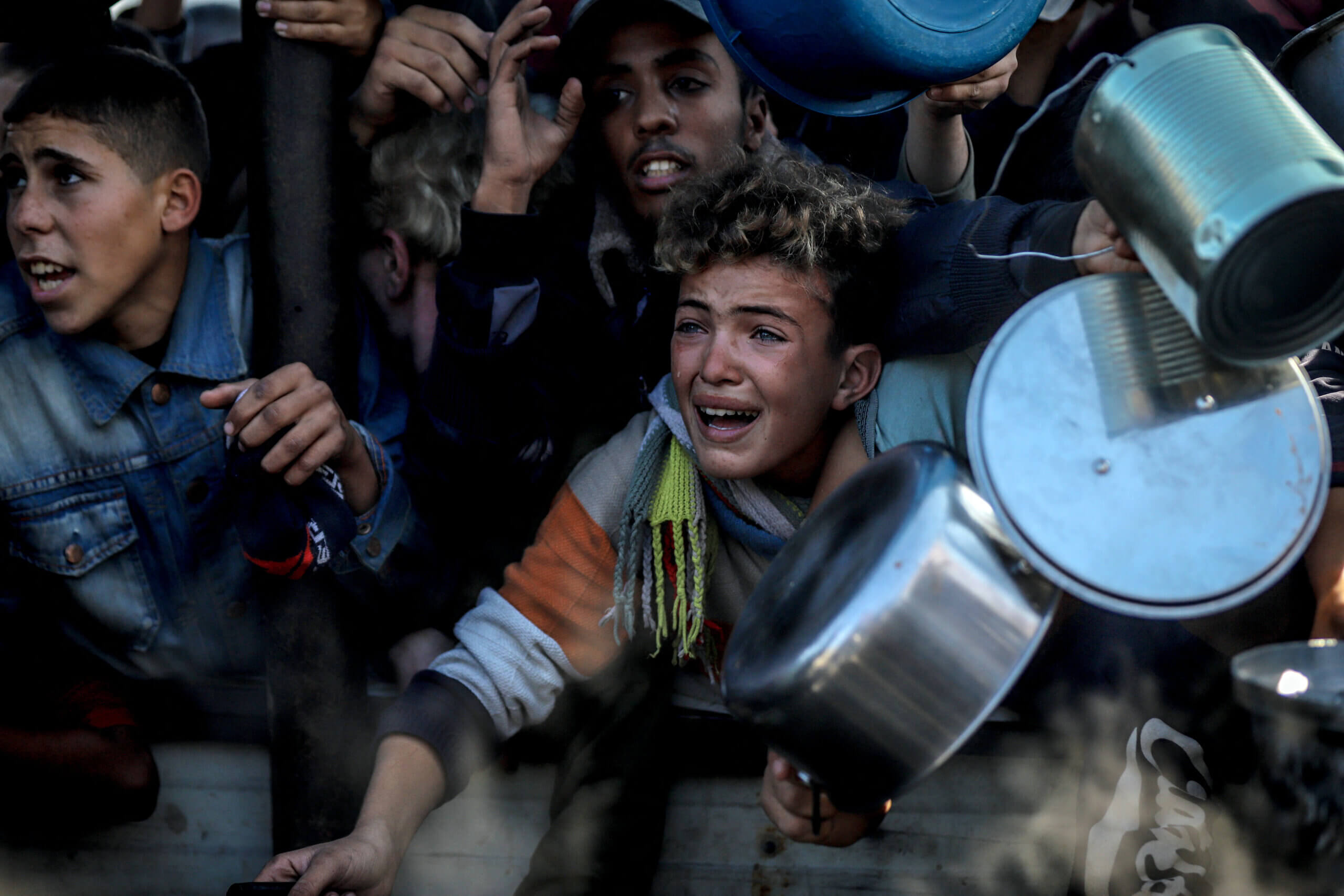Amnesty International says Israel is committing genocide in Gaza
The declaration throws the weight of a major international advocacy group behind a popular claim against Israel amid war with Hamas

Palestinians walk at the Rashad al-Shawa Cultural Centre, a famous cultural institution in Gaza City, in 2020. Israel destroyed the building during the current war in Gaza. “They’re bombing the city’s landmarks,” a municipal worker in Gaza City told Amnesty International. “Their intent is for the city to have a different face after the war.” Photo by Getty Images
Amnesty International said Wednesday that Israel is committing genocide in Gaza, lending the credibility of one of the world’s best-known human rights organizations to a claim that activists and some legal scholars have been making for more than a year.
Amnesty is the largest human rights group to definitively describe as genocide Israel’s prosecution of the war in Gaza that was spawned by the Oct. 7 Hamas terror attack.
The organization said that Israel has sought to at least partly destroy the Palestinian people through indiscriminate attacks on civilians in Gaza, repeated evacuation orders, limits on humanitarian aid and other measures that cannot be justified as essential to its legitimate military operation against Hamas. That led to the conclusion, backed by a nearly 300-page report and more than 200 interviews, that the Genocide Convention’s requirement of “intent” applies.
“We could find only one reasonable inference and conclusion,” said Agnès Callamard, secretary general of Amnesty, “which is that, either in addition to — or in order to — deliver military objectives Israel intended to commit genocide.”
Previous reports from both Amnesty and Human Rights Watch accusing Israel of apartheid helped cement that view among international rights groups. Human Rights Watch has not made a determination as to whether Israel is committing genocide in Gaza.
The accusation that Israel is committing genocide against the Palestinians predates the current war, but became far more pronounced and widespread after Israel began its furious response to the attack last October in which Palestinian terrorists killed some 1,200 people in Israel and kidnapped another 250. Israel dropped more than 29,000 bombs on the 141-square-mile territory in two months; international officials say more than 44,000 Palestinians in the strip have been killed to date, and nearly all of Gaza’s 2 million residents displaced and at risk of starvation.

Dozens of legal scholars and academics initially warned of a “potential genocide” in Gaza. The Lemkin Institute for Genocide Prevention described it as a genocide in December 2023, and Genocide Watch, a monitoring group, said in Febraury that Israel’s activity had “included many acts of genocide.” The International Court of Justice ruled that it was “plausible” Israel’s actions amounted to genocide that same month, and in May a consortium of international law experts from Yale, Cornell and Boston University said that Israel was committing genocide.
Those allegations have been met with derision by Israel and its defenders, who generally say that Palestinian civilian casualties have been exaggerated and that Hamas is to blame for them because it embeds its fighters in dense urban areas and steals aid.
Arsen Ostrovsky, chief of the International Legal Forum, a pro-Israel group, called the Amnesty report “nothing short of a blood libel against the Jewish state.”
Oren Marmorstein, an Israeli government spokesperson, denounced the report a week before it was even released, telling the New York Post: “The deplorable and fanatical organization Amnesty International has produced a fabricated report entirely based on lies.”
In its report, Amnesty says that it reviewed statements by Israeli government and military officials, and their submissions to the Israel Supreme Court, but had “received no substantive answers” to letters sent to Israeli authorities between Oct. 30, 2023, and Oct. 16, 2024, requesting meetings and information.
Amnesty seeks to demonstrate ‘specific intent’
Much of Amnesty’s report consists of detailing damage to civilian infrastructure in Gaza, including the destruction of mosques and universities that did not appear to have any connection to Hamas. By July, the group says, 63% of all structures in Gaza had been damaged or destroyed, including 85% of all schools.
“It’s known they are fighting Hamas and one might suppose that they’d bomb any place in which it would seek refuge, but when they bomb the Gaza public library, the unknown soldier monument, the Rashad al-Shawa Cultural Centre — where Bill Clinton met with the legislative council — they’re bombing the city’s landmarks,” a municipal worker in Gaza City told Amnesty researchers. “Their intent is for the city to have a different face after the war.”
But international law does not define the crime of genocide solely based on the extent of destruction or even death in a designated group. It requires that the violence against that group be done with “specific intent” to destroy it, at least in part, which is often difficult or impossible to prove. Amnesty pointed to what it described as statements from senior Israeli officials encouraging the destruction of Palestinian society in Gaza and erasing distinctions between combatants and civilians.
For example, a few days after Oct. 7, Gen. Ghassan Alian, who manages the unit in charge of Palestinian civilian life in the occupied West Bank and Gaza, recorded a video in Arabic promising to punish the local population.
“The citizens of Gaza are celebrating, instead of being horrified,” Alien said in the video. “With such human beasts, we will deal accordingly. Israel has imposed a complete blockade on Gaza. You will not have electricity or water, just destruction. You want hell, you’ll get hell.”

The report also highlighted several references by Prime Minister Benjamin Netanyahu to “Amalek,” the Israelites’ biblical enemy, which God commanded the Jewish people to exterminate completely.
Callamard, the French human rights attorney who has run Amnesty since 2021, said at a Wednesday briefing for reporters that Israeli soldiers in Gaza appeared to have acted on these statements. “I am coming to conquer Gaza … to blot out the memory of Amalek,” soldiers sing in one video referenced in the report. “We know our slogan: ‘There are no uninvolved civilians.’”
Israeli military and political officials say their soldiers take extensive measures to protect Palestinian civilians, including delivering warnings in advance of strikes and issuing evacuation orders, But Amnesty said in its report that these measures were insufficient and sometimes have themselves represented violations of international laws regarding warfare.
The report said, for example, that Israel had issued 59 different evacuation orders since the war began that were “sweeping, often incomprehensible to the local population, misleading and arbitrary.”
Condemnation of Hamas
Ostrovsky, the legal scholar, and organizations including Genocide Watch have also accused Hamas of committing acts of genocide in its Oct. 7 attack against Israel. At Wednesday’s briefing, Amnesty officials did not respond to a question about whether they had evaluated that question.
But Amnesty did say that it is in the process of completing a second, comprehensive report on the violence committed by Hamas and other Palestinian militants on Oct. 7, and that some of their actions — including “deliberate mass killings” in Israel — constituted war crimes.
The organization also acknowledged that “Hamas and other Palestinian armed groups endangered Palestinian civilians through their conduct by operating from, or in the vicinity of, densely populated residential areas.” But Amnesty noted that fact “does not release Israel from its own obligations under international humanitarian law.”
The report calls on Israel and Hamas to reach an immediate ceasefire, and for Hamas to release all Israeli hostages it is currently holding and allow the Red Cross to visit those in captivity. Some 100 hostages remain in captivity, though at least a third are believed dead.
Amnesty tends to take a more emotional approach to its advocacy than some other human rights groups, and that was on display during Wednesday’s briefing unveiling the genocide report. Cammard repeatedly criticized international governments for failing to take enough action to stop the war and described the organization’s research as having been conducted with “blood, with commitment, with anger.”
Budour Hassan, an Amnesty researcher in Israel and the West Bank, described the influence of Gaza residents who shared their stories with her team: “They wanted to tell the world that what is happening has only one name and we should not be shy of saying that name: It is genocide.”
















